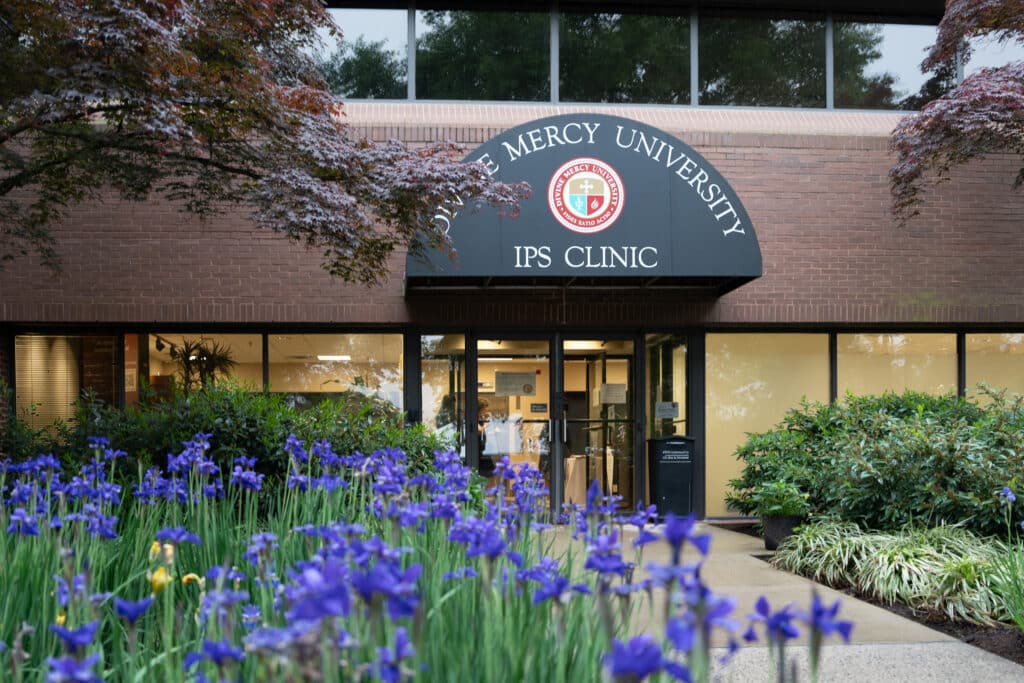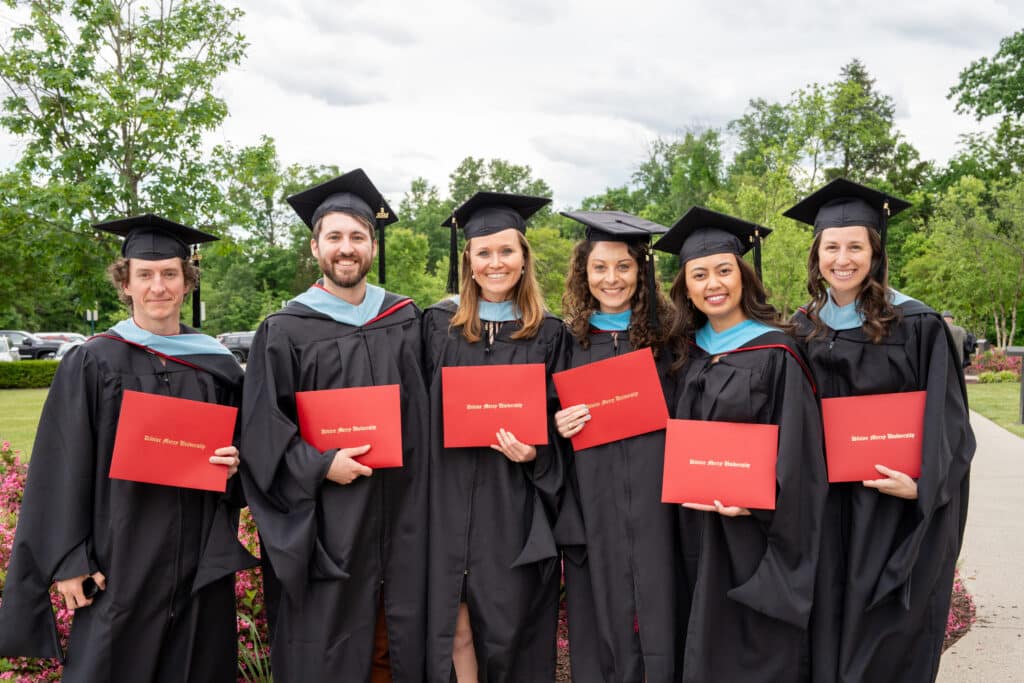This article first appeared in Our Sunday Visitor magazine. Subscribe to receive the monthly magazine here.
In recent years, the mental health crisis has reached unprecedented levels, affecting people from all demographics. With rising rates of anxiety, depression and loneliness, there is an urgent need for mental health care that addresses the whole person: body, mind and soul. Father Charles Sikorsky, LC, JD, JCL, president of Divine Mercy University, a Catholic graduate school for psychology and counseling, is an outspoken proponent of this approach to mental health.
“Pope St. John Paul II once acknowledged the importance of psychology and psychiatry but warned that, without a realistic understanding of the human person, they can go off in the wrong direction.” An integrated understanding of mental health gives individuals purpose when facing challenges like depression or anxiety. “Purpose can give meaning to suffering, reminding people that God can bring good even out of our sufferings,” Father Sikorsky noted.
Theology informs psychology
A key element in a Catholic understanding of the human person is the teaching on sin and grace. “We’re essentially good, but we carry the wound of original sin,” Father Sikorsky explained. This reality must be considered when addressing mental health. While humans can do great good, we are also inclined to sin and vulnerable to suffering. However, there is always hope for healing. “For those who are overly pessimistic, there’s hope: Anxiety, depression and struggles can be overcome through virtue,” Father Sikorsky said. “For those who are overly optimistic, we need to recognize our limitations and realize there are many things we cannot control.”
For Catholic therapists, relationships play a central role. Humans are inherently relational, created in the image of God, who exists as a communion of persons: Father, Son and Holy Spirit. This connection between psychology and theology is practical in mental health treatment. “We can use relationships, friendships and families as ways to overcome psychological distress,” Father Sikorsky said. Gratitude, he added, can be an antidote for depression, helping us recognize the good in ourselves and others.

The mental health crisis is not only personal but cultural. Father Sikorsky noted that societal shifts, such as the decline of traditional family structures and the erosion of community, have worsened the crisis. “We’re made for love, to receive it from God and give it back to him and others,” he said. “When families struggle or religious belief declines, those issues carry over.” The prevalence of social media has further complicated how we understand ourselves. “People become depressed over things like not getting enough likes or comparing themselves to others,” Father Sikorsky said. “The virtual world is a big driver of the crisis.”
Catholic counselors respond
Catholic counselors are uniquely positioned to guide individuals by opening the door to God’s grace. “This can be an opportunity for evangelization,” Father Sikorsky said. “Many people go to therapy but not church. By listening well, we can help them overcome their struggles in deep ways that lead them to faith.”
People of faith who struggle with mental health may feel conflicted about seeking help, believing prayer alone can resolve their issues, even when their struggles are more human than spiritual. “There are certain things you just can’t pray away,” Father Sikorsky said. The Church, he suggests, can play a crucial role in encouraging people to seek both spiritual and professional support, emphasizing there’s no shame in addressing mental health concerns.
Father Sikorsky reminds those struggling with mental health, “You’re not alone. God is with you, and God loves you.” He emphasized the importance of knowing one’s worth and trusting in God’s guidance: “You’re important to God, and others love you. … God has placed people in your life to help you.”
Training for creative solutions
For those considering a career in this field, Father Sikorsky advised, “If you want to serve people at a deep level, you’ll find meaningful work. You may not become a billionaire, but you’ll experience the reward of helping others.”
Divine Mercy University trains future mental health professionals to offer services aligned with Catholic values while addressing today’s complex realities. “We train our students to understand the true good of the human person — who we are, what we’re made for and our ultimate destiny,” Father Sikorsky explained.

The university’s programs prepare students for diverse careers, from private practice to teaching in higher education and working in hospitals. Students have contributed to diocesan retreat centers, grief ministries and assisted those affected by the recent Los Angeles wildfires. “We train people and equip them to make a difference in the world,” Father Sikorsky said. “They go out and develop creative solutions for the mental health crisis.”
There is hope for a future where human persons are understood in all their depth and dignity. The mental health crisis is complex, but with a compassionate, holistic approach that integrates psychology and Catholic teaching, healing is possible — and not just possible, but transformative.








